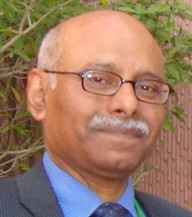
Biography
Biography: Sarwar Jamil Siddiqui
Abstract
The current population on this planet is 7.66 billion. This figure is projected to be 8.55 billion by 2030. Low and middle income group countries suffer the double burden of communicable and non-communicable diseases and yet less than 8% of GDP is spent on health in these countries. Two thirds of the neurological disease burden occurs in the developing world. According to the WHO, neurologic disorders account for 11% of all of the world's premature deaths and years lived with disability. Stroke accounts for approximately 10% of deaths worldwide with 85% of stroke occurring in low-income and middle-income countries. About 70% of African countries have 4 or fewer neurologists in the country. Situation is not very different in Southeast Asia, for example Afghanistan has only one trained neurologist. This disparity in available resources and disease burden is highlighted in this talk. Unless this disparity is addressed now we cannot hope to improve health status of this planet as a whole. Three areas deserve special attention: disease burden on clinical services, Neurology education and training and neurology research in the low and middle income countries. There are many organizations and interest groups working to address this gap in the healthcare but neurological fraternity is not prominently visible on the map of global health initiative. The idea behind choosing this topic as a keynote speech is to initiate and support broad-based global efforts for the prevention and treatment of neurologic disorders; to improve neurology education and training by developing and supporting initiatives to build local capacity for neurological training, and to promote and enhance meaningful research in low and middle income countries. In addition to highlighting the magnitude of the problem this talk includes acknowledging the efforts being made to improve the situation by various interest groups and the way forward in order to achieving equity in health for all people worldwide.

